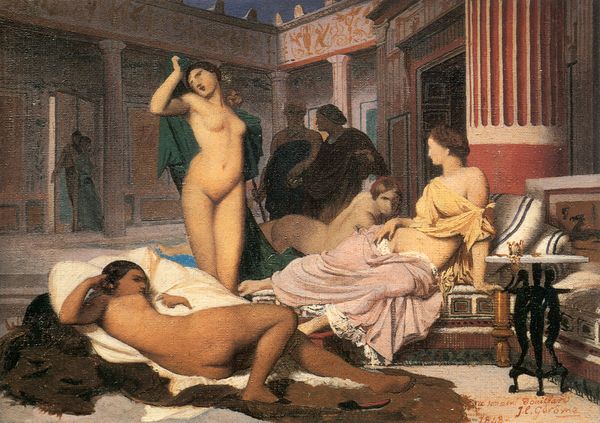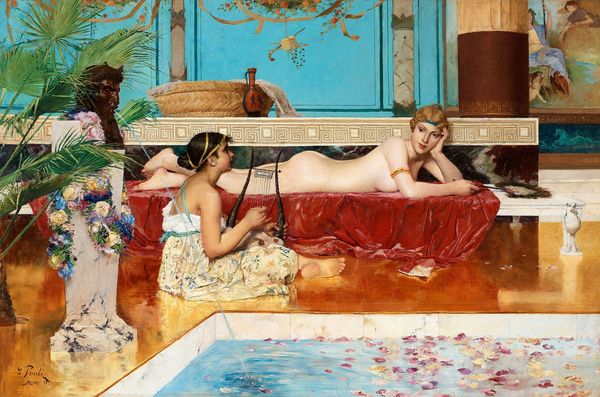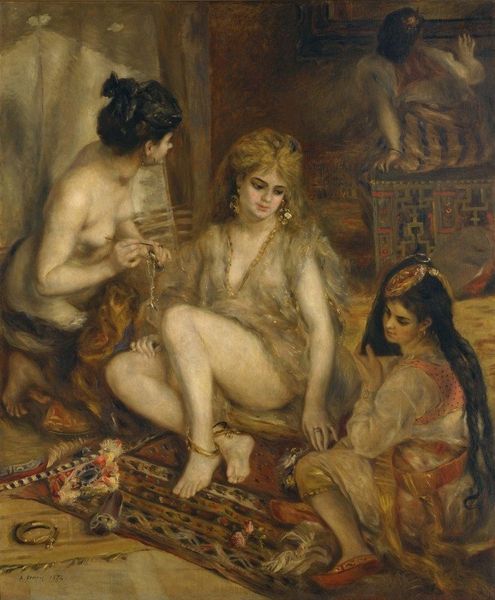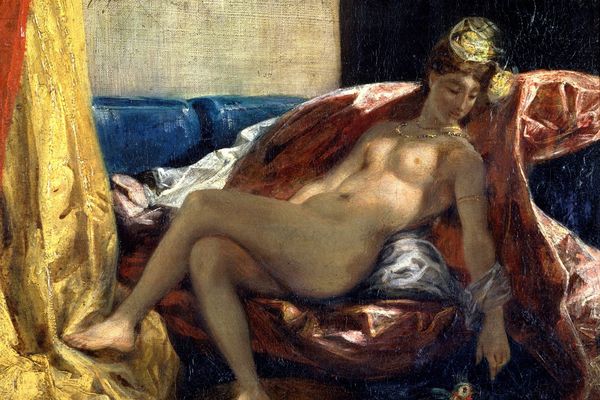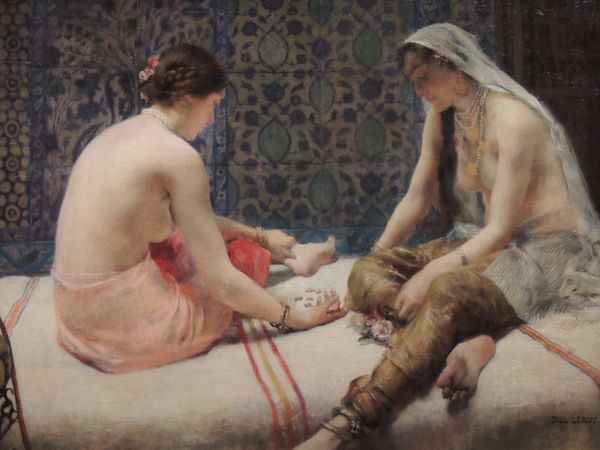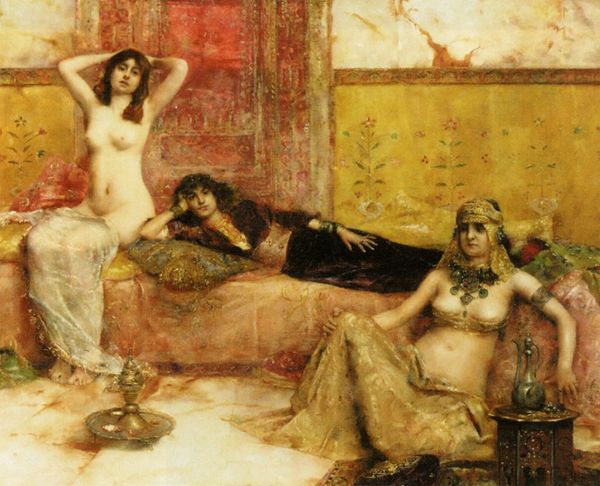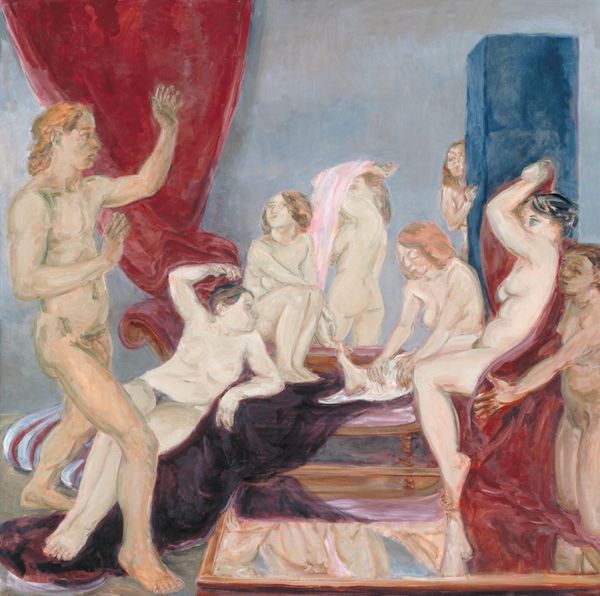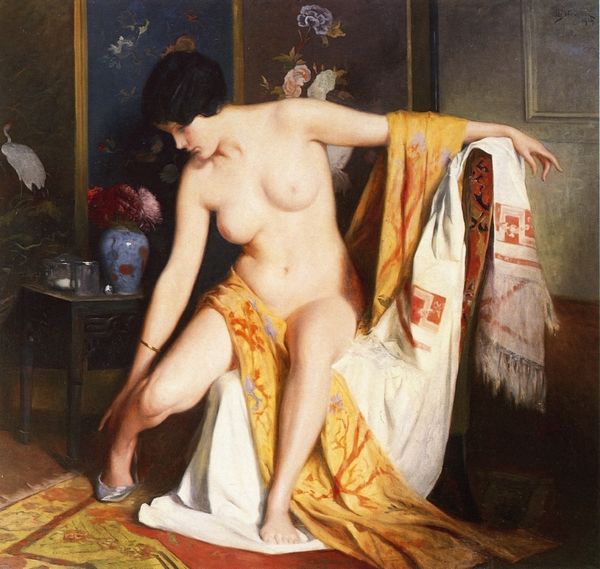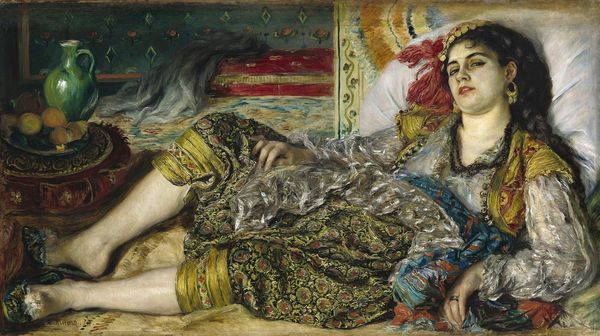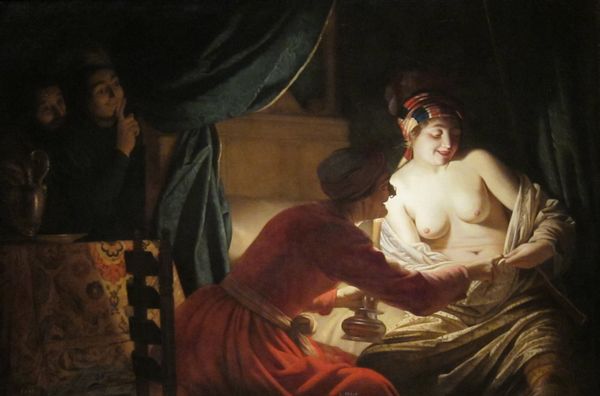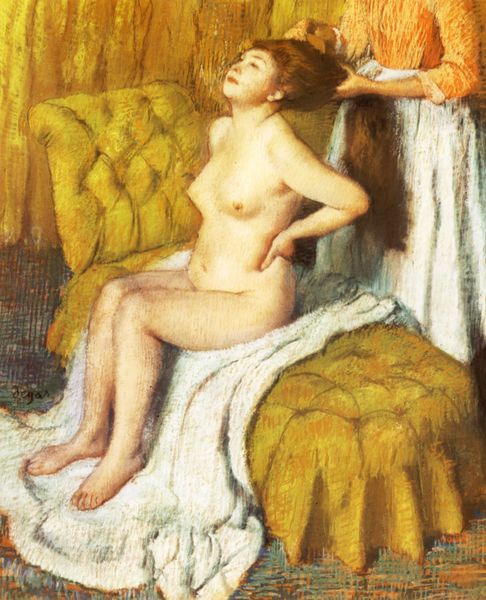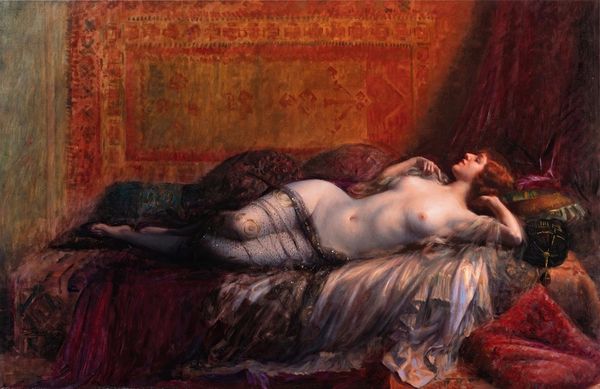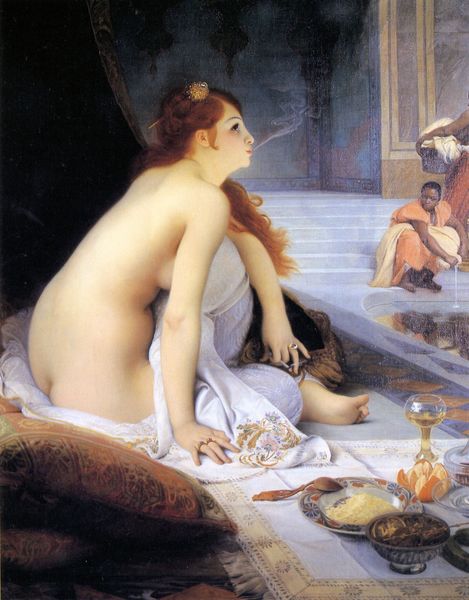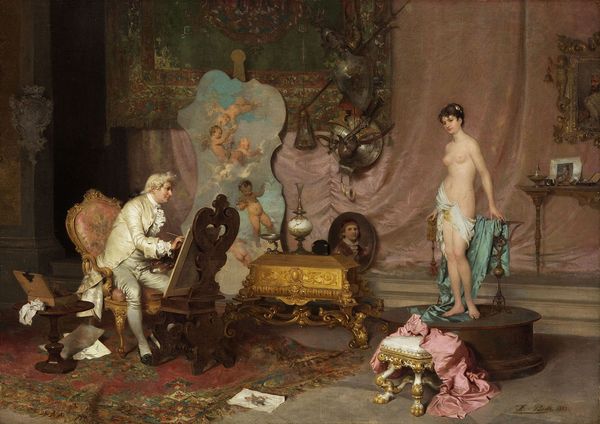
painting, oil-paint
#
portrait
#
painting
#
impressionism
#
oil-paint
#
oil painting
#
female-nude
#
orientalism
#
genre-painting
Dimensions: 132 x 127 cm
Copyright: Public domain
Editor: So, here we have Frédéric Bazille’s "Toilette," painted in 1870, and rendered in oil. The figures, their expressions and clothing all convey a sense of narrative. What's your interpretation of this piece, particularly given its title? Curator: Well, the title itself is a loaded term, isn’t it? “Toilette,” evoking both intimate grooming rituals and, frankly, the exotification and objectification of women prevalent in 19th-century art, particularly through an Orientalist lens. This painting invites us to think about the power dynamics at play, particularly the interplay between race, class, and gender. Look at the central nude figure: how does her positioning, the gaze directed elsewhere, speak to conventional representations of the female form at the time? Editor: I see what you mean about her passive pose. The other two women appear to be assisting her. Could this be viewed as Bazille exploring female relationships, or is it simply reinforcing a colonial narrative? Curator: That's a crucial question. Consider the black woman who seems to be attending to the white woman, and another standing, waiting with a garment. Bazille is playing with accepted societal norms, representing a very specific type of female intimacy – the bourgeoise woman surrounded and assisted by dark-skinned figures, common for the epoch. What is Bazille trying to communicate about status, servitude, the male gaze and the colonial project? How might it reflect the prevailing social attitudes towards race, class, and colonialism? Editor: It certainly gives one pause when examining these social structures visualized in painting. I hadn’t considered all the layers embedded in it before. Curator: Precisely! We need to ask these questions to push back against merely accepting historical works at face value and recognize that art, especially from this period, is inextricably linked to political, cultural and economic contexts. These issues aren’t relegated to history, are they? Editor: Not at all. Understanding how these visual tropes were established then helps us to unpack how similar power dynamics continue to operate today. Thank you, that was so enlightening!
Comments
No comments
Be the first to comment and join the conversation on the ultimate creative platform.
